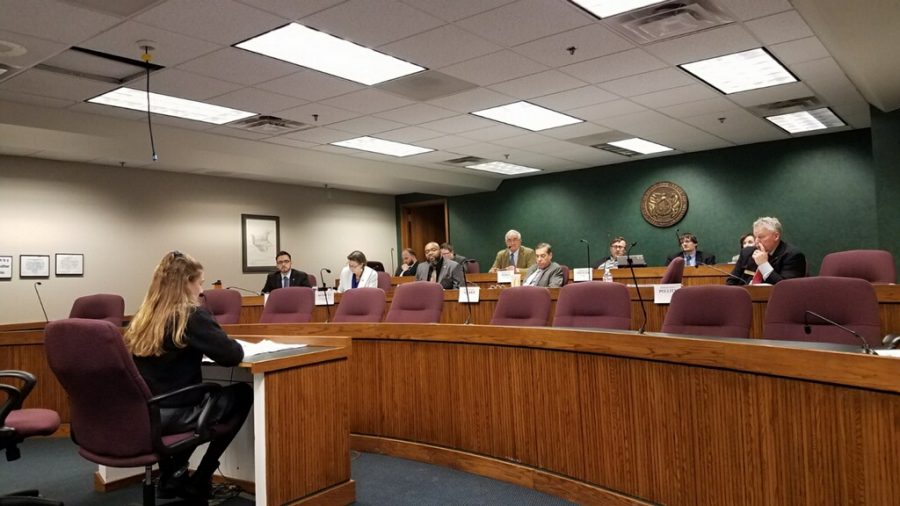Sophomore Clara Bonstead Advocates for People with Dyslexia
Credit to photo submitted
Published: April 1, 2021
Rocking in a hammock reading a book may not seem very significant to many, but for sophomore Clara Bonstead, reading a book is an important chapter in her story, which has been years in the making, but is still only in the beginning.
In early elementary school, Clara was evaluated and told she had a visual processing disorder. Years later, she was diagnosed with the language-based learning difference called dyslexia.
“My problem is more of a comprehension dyslexia,” Clara said. “I can read for a long time and not understand a single word that I read, unless I spend a really long time reading every sentence two to three times.”
She excelled in many areas, so her reading difficulties were excused in each elementary school she attended. Test results labeling her “gifted” in part made those schools reluctant to give her the help she needed. Teachers insisted ‘she was right where she needed to be’ and her reading grades were rounded up so she wouldn’t be held back.
“I wound up having grades that were good enough to where I could pass,” Clara said. “I was so proficient in other things, [my teachers] didn’t want me getting held back for reading. And because of that, I was kind of just looked over for many years. I had dyslexia that whole time and I still couldn’t read by the time I was going into middle school.”
Her unrecognized dyslexia began to take a toll in later grades. As she was entering middle school, the Bonsteads decided to enroll her in Churchill Center and School, a private school in Town and Country. The school teaches students how to read using the phonics- focused Wilson Reading System instead of the ‘whole language’ method taught in most public schools. The school also focuses on helping students to understand their learning difficulties and advocate for themselves. At Churchill, the students have individualized learning plans and teachers meet frequently to discuss each student’s progress, so each teacher understands the needs of each student and sets expectations for them accordingly.
“The grade card had about 70 different things that [the teachers at Churchill] were evaluating, as opposed to just having a grade card that just listed your seven classes,” Clara’s mother, Angela Bonstead, said. “Every subject area would have specific goals that they were measuring.”
Clara stayed at Churchill for and learned almost every book of the curriculum in two years, though it was estimated to take more than three. After learning to read, she shifted her focus to teaching others about dyslexia and advocating for changes in the educational system. To learn more about dyslexia, she began volunteering for a non-profit organization called Decoding Dyslexia Missouri, which at the time was trying to pass SB54 and HB368, the Reading Success bill.
“[This bill] would have been the next step,” Angela said. “If a child is identified with dyslexia, then we want [schools] to develop a plan to make sure that child is reading on grade level, and if there’s any point in their education they stop reading at grade level, then [schools are] going to intervene and help this child.”
Clara decided to make an informational video to earn her Girl Scout silver award. She interviewed parents, children and educators about the effect dyslexia had on their lives and how the bill would have helped them. She has written several letters to representatives and testified at committee hearings to encourage congress members to support the bill’s passage.
“It was incredible seeing how well this [the Wilson Reading system] works,” Clara said. “I learned that I’m one of the lucky ones, and I want to help all these other people learn to read, and I wish we had more of a community to reach out to all these people who don’t realize there’s a community there.”
Though dyslexia made learning difficult, Clara came out on top and does everything she can to make sure other people with dyslexia have the opportunity to do the same. She plans to continue advocating for legislation and resources for people with dyslexia and plans to build a educational website to help students and their parents. To continue enriching herself in language and in an effort to be better prepared for college, she even decided to learn a new language.
“I think one of Clara’s gifts is that she’s a clear communicator,” Angela said. “She is empathetic and compassionate towards other people. People ask questions and she’ll share her experiences, and I think the more people learn about dyslexia, there will be considerable improvement.”








![JV Girls Basketball Takes A Win To FZE On The First Game Of The Season [Photo Gallery]](https://FHNtoday.com/wp-content/uploads/2024/12/voccer10.24_kwallace-3-300x200.jpg)

![It's Time for the BOE to Respect Student Input [Editorial]](https://FHNtoday.com/wp-content/uploads/2024/11/Untitled_Artwork-1-300x173.png)


